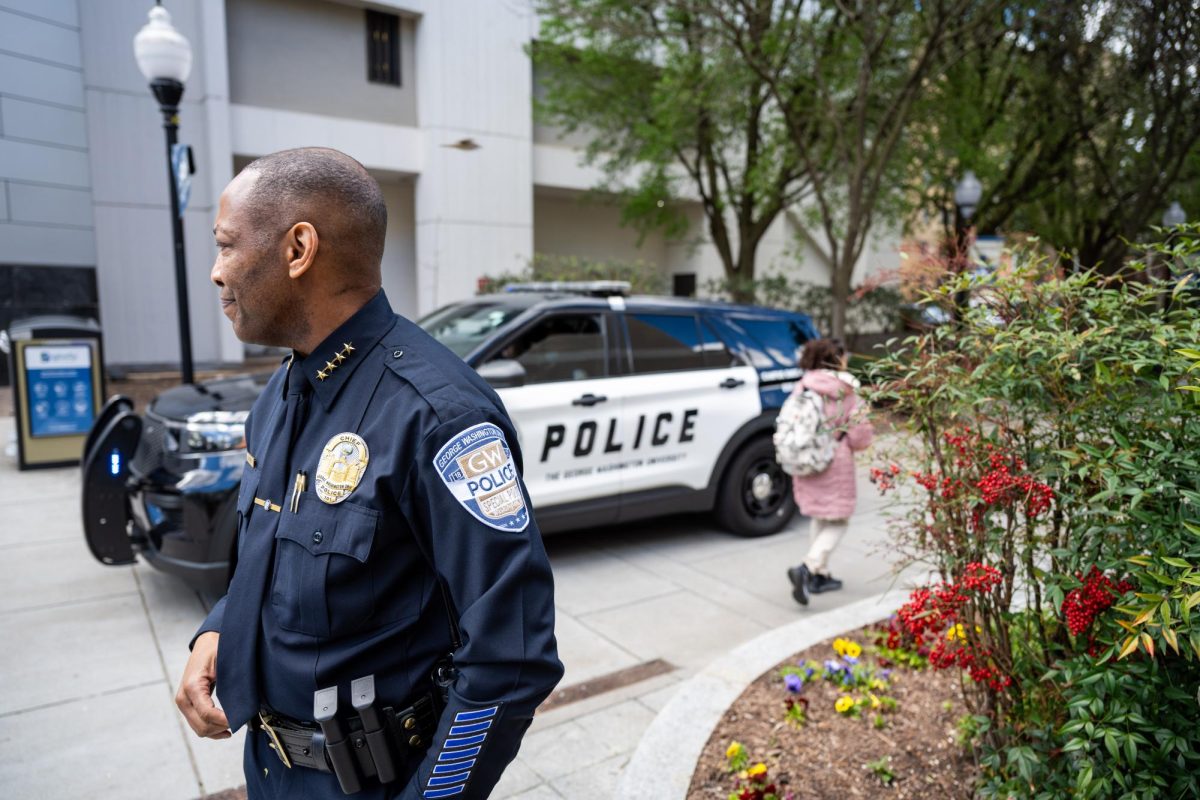
This post was written by Hatchet reporter Kelly Quinn.
Chelsea Clinton and Twitter co-founder Biz Stone participated in two separate discussions Saturday on day two of the Clinton Global Initiative University, both oriented toward giving students inspirational advice for recognizing and reacting to problems.
Students huddled into a packed Lisner Auditorium for a forum called “The Wisdom of Failure,” which included a panel of entrepreneurs like Stone and Zipcar founder Robin Chase who discussed how to learn from missteps.
“Failure looks great on a resume,” Stone said to moderator Kathryn Schulz, a book critic for The New York Times Magazine.
Chase spoke about her struggle to keep the startup company from collapsing. She recalled the low point when she turned off the lights and retreated to her bedroom when Zipcar only earned 50 percent of the funds needed for it to continue. She said the company has only become a success through perseverance and tough choices.
In another panel discussion in Lisner Auditorium in the afternoon, dubbed “Futurenomics,” Clinton led a panel of social and political entrepreneurs in a discussion on how to harness great ideas to help poverty and financial instability.
Clinton began the discussion by asking the question: “How do we build the next generation of social and political entrepreneurship?” She noted the importance youth have played in the past year in creating great social and economic shifts, specifically in Occupy Wall Street and the Arab Spring.
“The best investment this nation can make is in the future of its people,” said Tamara Draut, a panelist and vice president of policy and programs for the national company Demos.
Between forums, students broke up and tried to meet with experts in fields like health, environment and education that pertained to their specific commitment. The 1,200 students at the conference – who came from seven different countries and all 50 states – each made a commitment to action to help a global issue when they applied in January.
Banaa, a group of sophomores Kelsey Lax, Eric Schlabs, Brian Browne, Jamie Fisher-Hertz and Ryan Brenner attended a working session titled “Preventing Future Genocides and Mass Atrocities.” The students, whose project is to provide scholarships for Sudanese students, said they found the session particularly helpful and applicable to their goals.
Schlabs said the networking opportunities and motivation the conference provided added a spark to their project.
“I think there are some intangibles here,” he said, adding that he was struck by the “good vibes” and “good energy” of the conference.
“It motivates you and inspires you to see all these other people around you showing how they make an impact on the world,” Browne added.
University President Steven Knapp reaffirmed the opportunities for students at the conference, and said, “All they really need to get going is a little bit of guidance, advice and some resources at this kind of gathering.”




